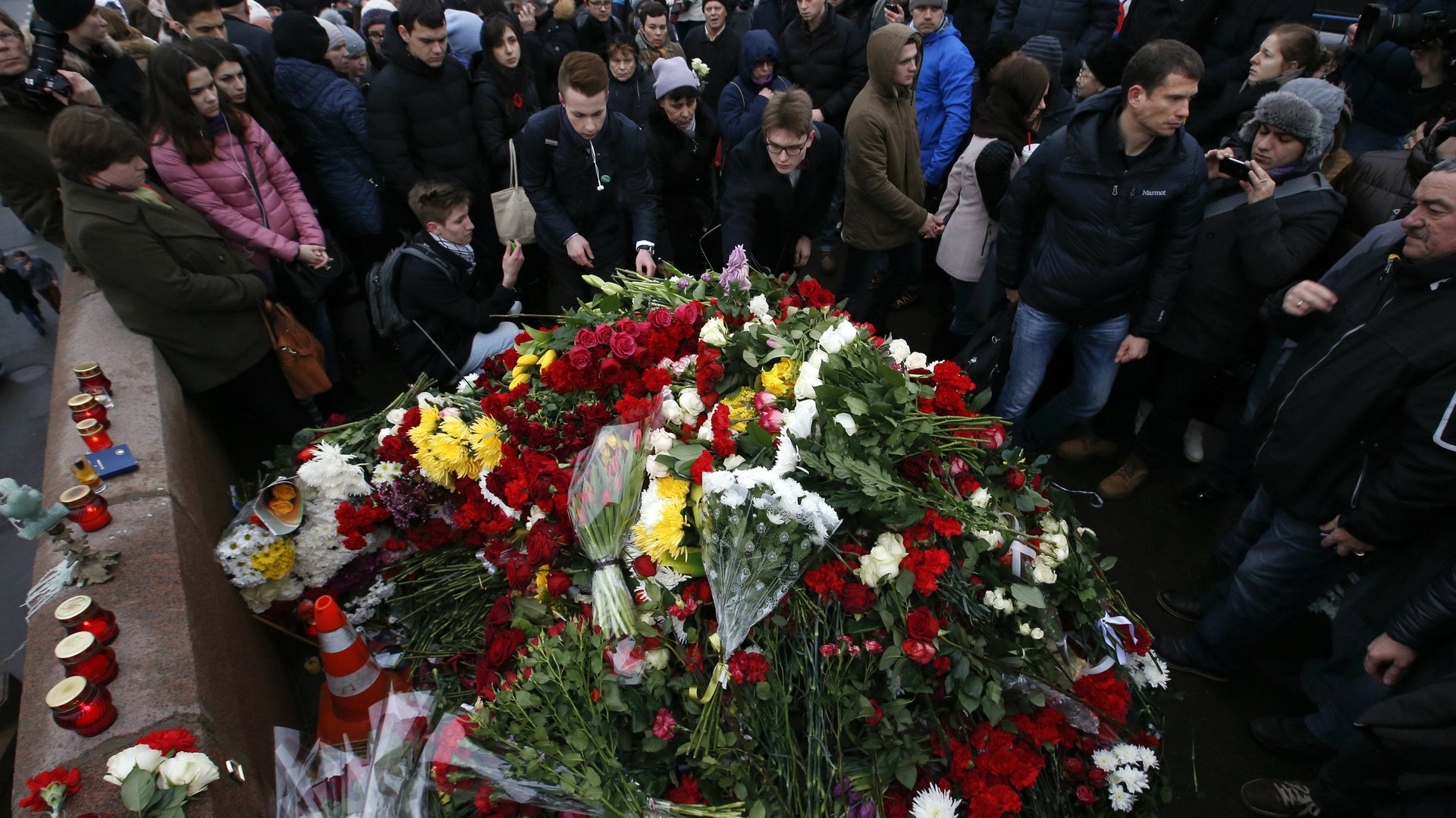The murders of prominent Russians won’t stop until Russians themselves demand it
Of all the many murders of prominent Russians over the last decade or so, no one has ever identified the customer: the person or people who commissioned the hit. Authorities have sometimes carted off a gunman to prison, but never the mastermind behind the crimes.


Of all the many murders of prominent Russians over the last decade or so, no one has ever identified the customer: the person or people who commissioned the hit. Authorities have sometimes carted off a gunman to prison, but never the mastermind behind the crimes.
In the wake of the Feb. 27 murder of opposition leader Boris Nemtsov, others have remarked on the notable risks of a public career in Russia.
What has gone less mentioned is the broader enabling role of ordinary Russians. Unless the violence has struck them personally, most people in Russia have gone along with the official impunity accorded those who deal in murder as an instrument of business or politics.
This is a conclusion that I reached in a year of research for my 2008 book, Putin’s Labyrinth: Spies, Murder, and the Dark Heart of the New Russia. Experts told me that the backdrop is history: ordinary Russians are, generally speaking, inured to such tragedy by centuries of tough and thuggish leadership, senseless and often capricious violence, and a chronic lack of justice.
It’s not that sympathy has been nonexistent: more than 50,000 people flocked yesterday to Bolshoi Moskvoretsky Bridge (see photo above), the site of Nemtsov’s assassination. Similar public outcries—though not as large—have followed almost all the murders, especially the 2006 assassination of journalist Anna Politkovskaya.
But the anger and sorry have quickly dissipated, no doubt in part because of the sense of hopelessness. In the Nemtsov case, it may happen even faster, because the popular skin is even thicker a year after the invasion of Ukraine, a year in which jingoistic propaganda has branded any critic a traitor.
In an interview a few hours before his death with Newsweek, Nemtsov said that Russian president Vladimir Putin had “programmed my countrymen to hate strangers.” He said:
He persuaded them that we need to rebuild the former Soviet order, and that the position of Russia in the world depends entirely on how much the world is afraid of us. He managed to do all these things with Goebbels-style propaganda. Russia [is quickly turning] into a fascist state. We already have the propaganda modeled after Nazi Germany. We also have a nucleus of assault brigades.
The cycle of resignation that marked the prior murders has left Putin unbruised and firmly in power until—it has been thought—2024. He cannot seek another consecutive term after that, according to the Russian constitution, although, as he did when his time ran out in 2008, he could again install an acolyte and seek a fifth term in 2030. He will be just 78.